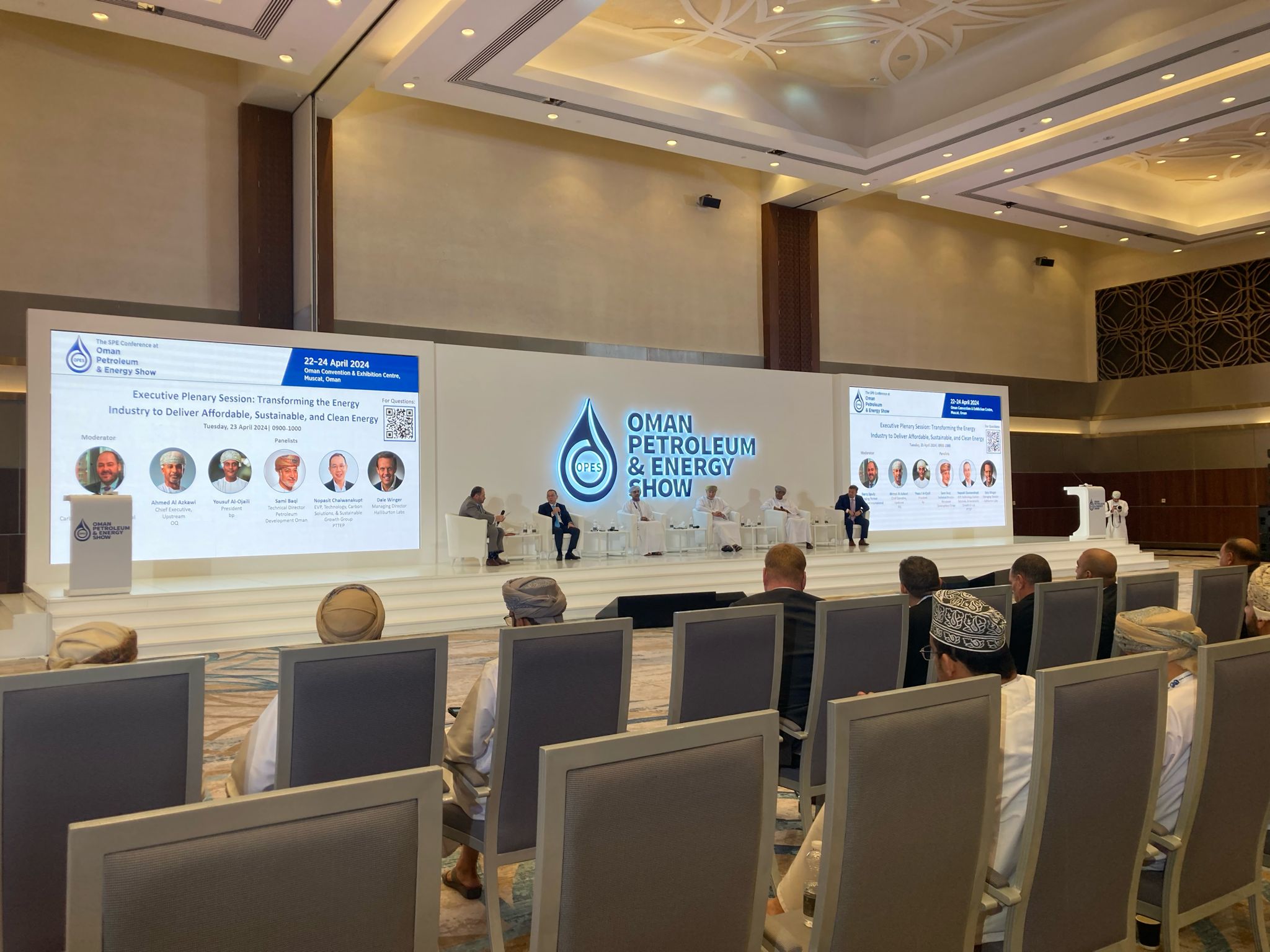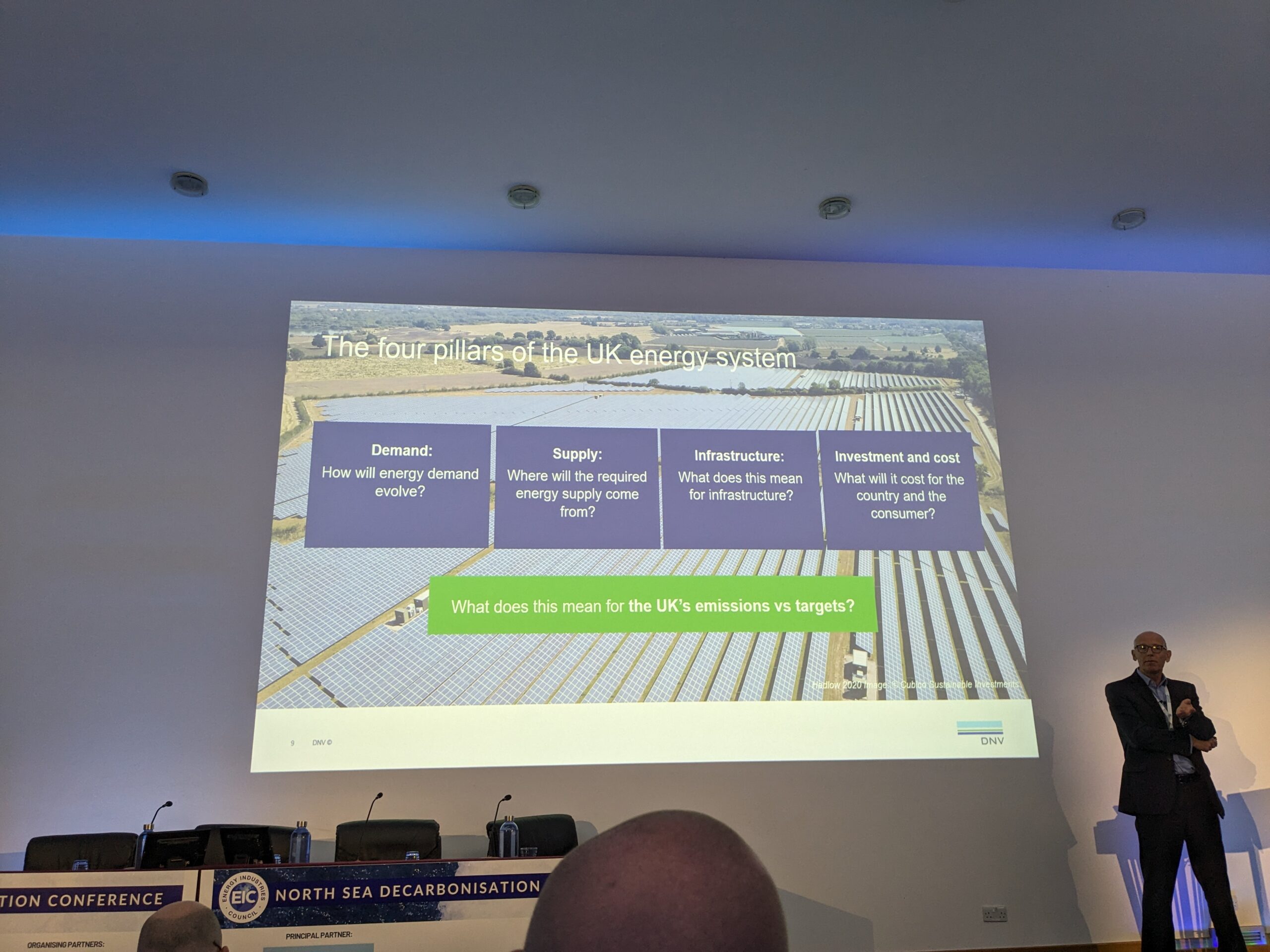“Think like activists, act as engineers,” says BP petroleum engineer at Oman energy show
Oman’s energy transition cannot happen without oil and gas still playing a role, delegates said at an Oman energy show this week.

(Muscat, Oman) — One of the key messages from the Oman Petroleum and Energy Show held this week in Muscat is that the oil and gas industry, which provides for 70% of the sultanate’s annual budget, will remain key to the country in the years to come, according to speakers and attendees.
Omani energy leaders and their foreign partners reiterated throughout the conference that gas has a central role in the energy transition, a view that those pushing for an immediate phase-out of fossil fuels would counter. More crucially, this transition cannot happen without oil and gas becoming increasingly intertwined and integrated with strategies to advance greener technologies like renewables and hydrogen, they said.
As Oman is firmly set on boosting the share of green energy sources in its power generation mix to 30% by 2030, this narrative is increasingly impacting the working culture, mindset and skill-sets of its energy workforce, including younger generations, as largely discussed at the Oman energy conference on Wednesday.
For Mohamed Al Balushi, reservoir engineer for BP, “gas is not just a transition fuel, but a destination fuel,” considering the reality of growing energy demand driven by population growth in the future, and the need to ensure security of supply, affordability and sustainability, a trilemma that brings up opportunities, he says.
“We, as petroleum engineers, need to think like activists, but act like engineers,” he said at a panel discussion entitled “Energy Industry Landscape – A Futuristic Youth Perception.”
“There are lots of transferable skills we can deploy. If we look at carbon capture and storage [CCS], we already have our core discipline such as petrophysics, geophysics, routine core analysis, seismic surveying, etc,” he said. “ And there are other skills that are supplementary, which you can build on like groundwater modelling, hydrodynamic analyses, etc,” he said. “So, there’s always that space for us to up-skill ourselves.”
For him, it is important to remain “one piece of the energy system,” he said. “Oil and gas is important but we have all these important feedstocks that are coming into our system. For instance, hydrogen will be key in Oman and we have solar and wind coming in. So how do we contribute to the integration of all these feedstocks into what we call decarbonised industrial clusters today?” he asked.
For Asal Al Mohammed, technical support analyst at OQ Alternative Energy, one avenue for preparing the younger generation of talent for the demands of the energy transition is to constantly adapt the curriculum for students at the university level. “For students to understand technical aspects in advances like renewable energy technologies and waste water, these things can be included in the curriculum,” she said, adding that project-based learning and actual internships can also represent key avenues.
The speed and pace of the energy transition demands a lot of skills’ development, requiring Human Resources to step up too and shift their policies, according to Hamood Al Rashdi, HR-PMO Lead at state-owned upstream company Petroleum Development Oman (PDO). “We are flooded with a lot of advancement in new technologies and the growing digital mindset,” he said, “day in and day out, we get a lot of data and information, and we need to manage that knowledge,” he said.
For Al Balushi, collaboration between all segments of Oman’s energy sector is central. “It is part and parcel of how we, as an industry can aspire to where we want to be as part of our ambitions and goals,” Al Balushi said.
Sustainability is also central. “Two or three years ago, the term sustainability was daunting to me because it was too encompassing, but I understood that it is a framework to go by to live up to our values and principles,” he said. “So we need to collaborate and aggregate,” he said.
“Innovation is an important pathway,” he added, “as part of this, we need to better manage data, to be able to measure what matters in an impactful and meaningful way,” he said.


